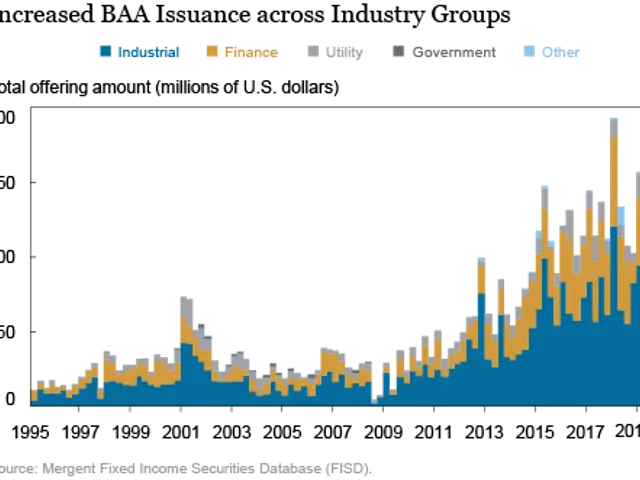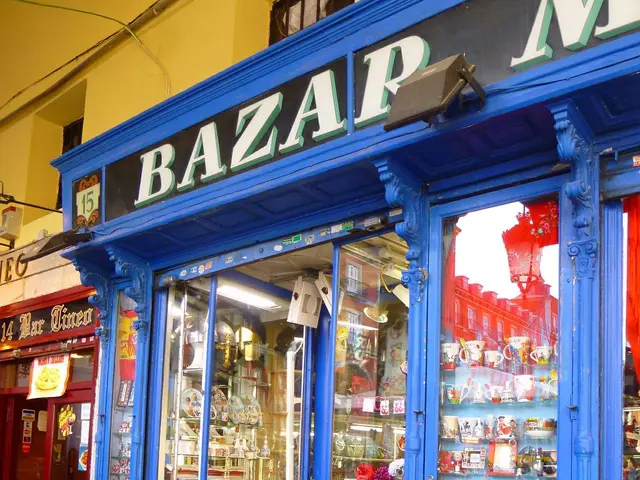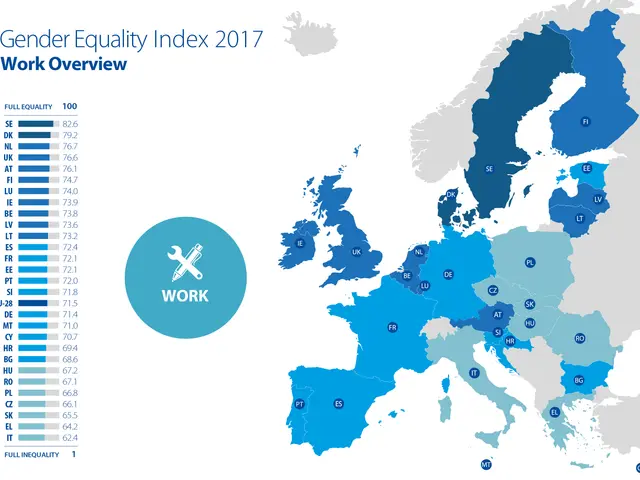Real Estate Market Slows Down, According to Zoopla, With Prices Anticipated to Dip More Due to Loss of Momentum
House price growth in the UK has seen a shift, with Zoopla reporting a slowdown in momentum. After a year ending in March 2025, house prices climbed 1.6%, compared to a 1.9% increase in 2024. Despite this decrease, prices are still above the 0.2% growth recorded in March 2023 and the average house price stands at a staggering £268,000, having increased by £4,270 over the past year.
The reasons behind this slowdown? A surge in homes hitting the market and a muted increase in buyer demand. According to Zoopla, the number of properties for sale jumped by 12% in the year to March, while buyer demand only rose by a meager 1%. As a result, the housing market is becoming more buyer-friendly, with more options available to select from.
This increase in houses for sale also led to a raise in the number of sales agreements. During the four weeks to April 20, there were 12% more homes for sale, along with a 6% increase in sales agreements. Many of these sellers are also buyers, which explains the rise in sales agreements.
The average estate agent branch now has 34 homes for sale, up from 31 at the same time last year and a low of 15 during the pandemic boom in 2022. However, buyer demand in March was only 1% higher than a year earlier, in contrast to the 10% increase seen earlier in the year.
Several factors contributed to this slowdown in price growth. Zoopla pointed out the increase in stamp duty on April 1, as well as the seasonal slowdown over Easter, as influential factors in this occurrence. Moreover, US tariffs on economic growth increased caution among home buyers.
Despite this slowdown, there is still optimism in the market, particularly in areas with more affordable house prices. Northern Ireland bucked the trend with a 6% increase in house prices compared to last year. The North West saw 3% growth, while Scotland and the West Midlands experienced 2.7% and 2.6% growth respectively.
However, parts of the South East of England are struggling, with house prices rising only 0.3% over the year. London, East England, and South West England experienced less than 1% growth.
Despite these challenges, experts predict that mortgage lenders will play a significant role in supporting the market. The Bank of England is predicted to lower interest rates at their next meeting on May 8, which could help Keep mortgage rates at their current level or slightly lower. Changes in mortgage affordability tests may also drive up property sales by allowing borrowers to take bigger loans than previously possible.
To conclude, while the housing market in the UK is experiencing a slowdown in growth, it remains active, particularly in more affordable areas. The increased choice of homes available for sale is counteracting the challenges posed by cooling buyer demand, economic uncertainty, and recent changes in stamp duty and interest rates. Nonetheless, lenders are expected to continue to support market activity, which should help maintain a healthy level of sales volumes.
- The slowdown in house price growth in the UK is partly attributed to a notable increase in properties for sale, with a 12% jump reported by Zoopla in the year leading up to March 2025.
- While buyer demand only rose by a meager 1% in the same period, the surge in properties available has made the housing market more buyer-friendly, offering more options for potential home buyers to select from.
- Despite the slowdown, the average house price stands at £268,000, having increased by £4,270 over the past year, signifying that the mortgage market still presents opportunities for investing in real-estate.
- To keep mortgage rates at their current level or lower, mortgage lenders are expected to play a significant role in supporting the market, as the Bank of England has predicted to lower interest rates at their next meeting on May 8, 2025.
- An increase in stamp duty starting April 1, 2025, as well as economic uncertainty due to US tariffs, have served as influential factors contributing to the slowdown in price growth, but experts remain optimistic about the long-term prospects of the UK housing market, particularly in more affordable areas.






